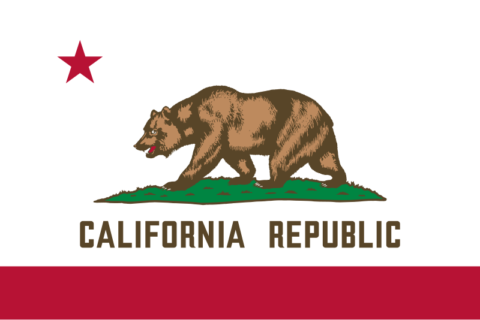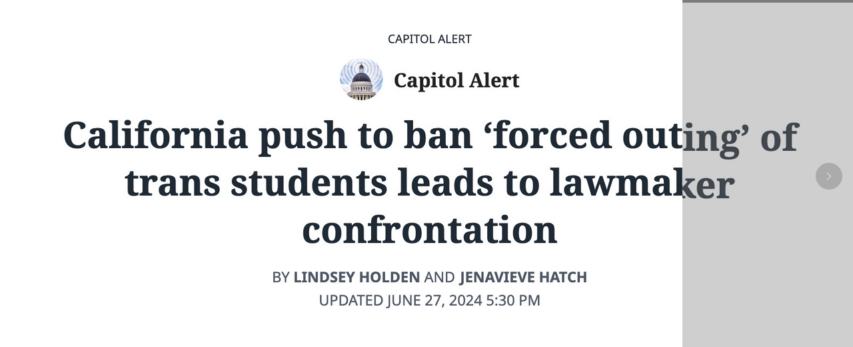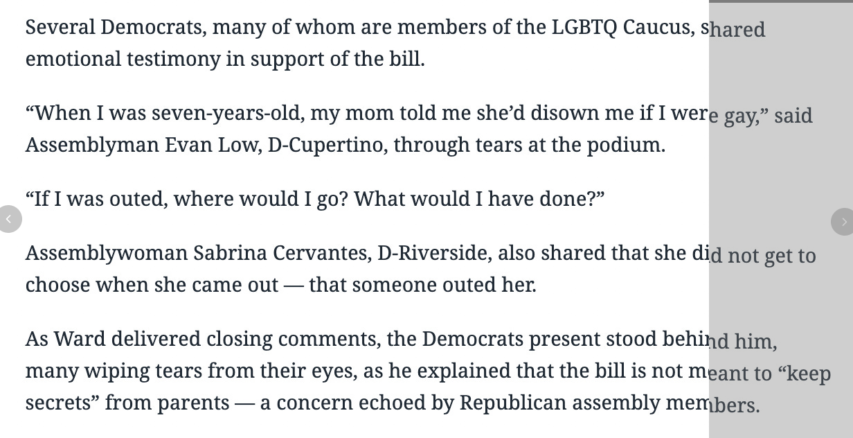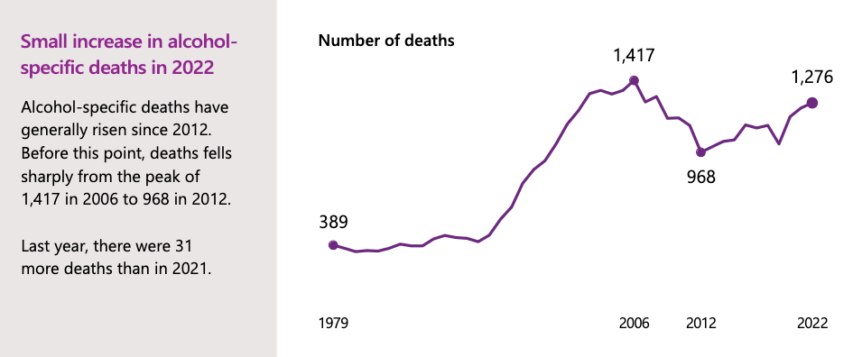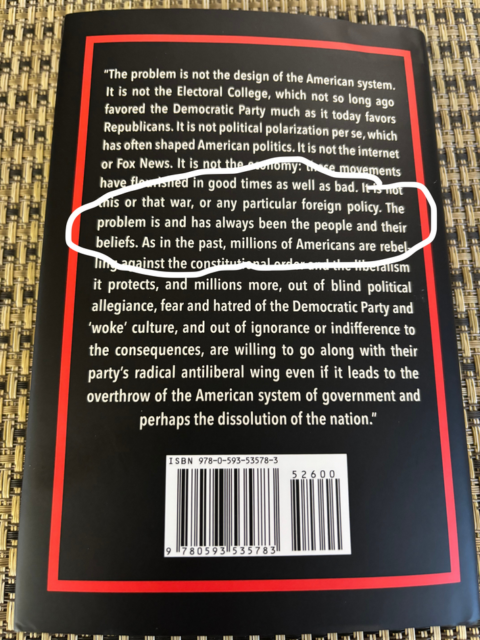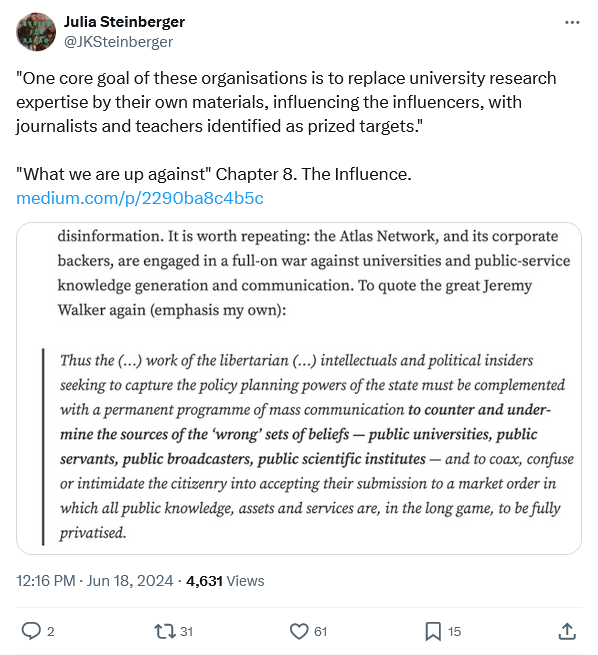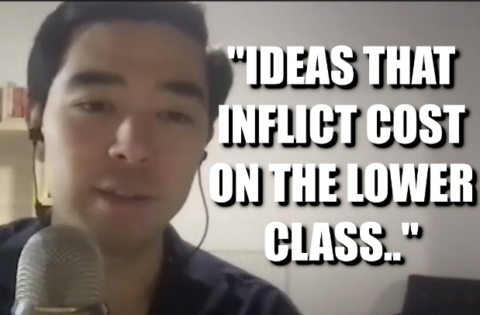All writers enjoying respect and popularity in their lifetimes entertain the hope that their work will outlive them. The true mark of a writer’s enduring influence is the adjectification of his (sorry, but it usually is “his”) name. An especially jolly Christmas scene is said to be “Dickensian”. A cryptically written story is “Hemingwayesque”. A corrupted legal process gives rise to a “Kafkaesque” nightmare for the falsely accused. A ruthless politician takes a “Machiavellian” approach to besting his rival.
But the greatest of these is “Orwellian”. This is a modifier that The New York Times has declared “the most widely used adjective derived from the name of a modern writer … It’s more common than ‘Kafkaesque’, ‘Hemingwayesque’ and ‘Dickensian’ put together. It even noses out the rival political reproach ‘Machiavellian’, which had a 500-year head start.”
Orwell changed the way we think about the world. For most of us, the word Orwellian is synonymous with either totalitarianism itself or the mindset that is eager to employ totalitarian methods — notably the bowdlerization or suppression of speech and freedoms — as a hedge against popular challenge to a politically correct vision of society dictated by a small cadre of elites.
Indeed, it was thanks to Orwell’s books — forbidden, acquired by stealth and owned at peril — that many freedom fighters suffering under repressive regimes, found the inspiration to carry on their struggle. In his memoir, Adiós Havana, for example, Cuban dissident Andrew J. Memoir wrote, “Books such as … George Orwell’s Animal Farm and 1984 became clandestine bestsellers, for they depicted in minute detail the communist methodology of taking over a nation. These […] books did more to open the eyes of the blind, including mine, than any other form of expression.”
Barbara Kay, “The way they teach Orwell in Canada is Orwellian”, The Post Millennial, 2019-11-29.
July 17, 2024
QotD: “Orwellian”
July 10, 2024
The four horsemen of cultural collapse
Chris Bray provides yet more examples of cultural decay and the collapse of law and order in America’s Trudeaupia, California under the loving care of Justin Trudeau’s spiritual twin, Gavin Newsom:
Today tells you about next year.
In a long history of murder in America, the historian Randolph Roth argued that violence follows other losses of trust and order. The murder rate surges in the face of “four distinct phenomena: political instability; a loss of government legitimacy; a loss of fellow-feeling among members of society caused by racial, religious, or political antagonism; and a loss of faith in the social hierarchy”.
Read that list carefully, because it should sound familiar.
Similarly, the originators of the theory of “broken windows policing” argued that peace and order grow from peace and order; neighborhoods are more likely to be calm when they’re “places where people are confident they can regulate public behavior by informal controls”. Crime follows crime; vandalism, for example, “can occur anywhere once communal barriers — the sense of mutual regard and the obligations of civility — are lowered by actions that seem to signal that ‘no one cares'”. The police commissioner William Bratton famously reduced all categories of crime in New York City subways by assigning officers to arrest turnstile jumpers who entered the system without paying. He sent a signal at the front gates.
“Broken windows” is a much-criticized theory: “He contended that the very notion of ‘disorder’ is subjective and racially fraught”. But the criticisms tend to reduce the complexity of the theory in order to “debunk” it.
Decay communicates. Disorder is a message.
June 30, 2024
California’s politics are so weird that Justin Trudeau is frantically taking notes
Chris Bray pays attention to California politics … and we should all pray for his long term mental health: that place is insane!
What’s happening in California isn’t politics in any conventional sense. No debate is underway, and no policy choices are being hashed out. We’re in the land beyond. In Our Democracy™, declarations are made, and then they are to be received in a spirit of quiet submission. Your failure to submit is disallowed, and the reason it’s been disallowed is that it’s been disallowed. Were it allowed, it would not be disallowed, but it is, in fact, disallowed, so therefore it is not allowed, you see? All “political” discussion is a circle, eating its own tail. I’ve been trying to figure out how to explain this, but the Sacramento Bee just did it for me. (Paywall-evading version here.)
The Bee is explaining — or “explaining” — what happened on the floor of the state Assembly yesterday, when a Republican was not permitted to argue against a bill, and a Democrat stood up to threaten him for trying. I encourage you to read the whole self-refuting thing. What happened, it turns out, is that the Republican was preventing debate by engaging in debate, which meant that he had to be silenced and threatened so debate could continue, which required that no one express opposing views, which is an act of anti-debate aggression. Debate is agreement, and not agreeing is preventing debate.
The “forced outing” debate was a discussion about AB 1955, which proposes to forbid schools to inform parents of discussions between children and school officials about sexual orientation and sexual behavior. It’s important that parents not be told about sexually themed discussions happening between children and the adults in their schools, because not telling mommy and daddy about sexual discussions is being safe and warm. But watch the casual turn of logic in the last paragraph of this screenshot:
- Evan Low said the bill is important because it’s good that parents not be told, and the bill makes sure parents aren’t told.
- Sabrina Cervantes said she didn’t have this bill when she was young, which would have forbidden telling, so someone told.
- Democrats explained that the bill is not meant to keep secrets from parents.
See, AB 1955 isn’t about keeping secrets from parents — it’s about not allowing schools to tell parents. Not being allowed to tell parents is different than keeping secrets from parents. The story doesn’t go on to explain the distinction between keeping secrets and not telling, but under Jacobin cultural rules, the distinction is that shut up. The distinction is presumptive, and so doesn’t require explanation.
Now, here’s the way the Bee characterizes Assemblyman Bill Essayli’s arguments during the debate that he derailed by not agreeing:
Essayli has exhibited a consistent pattern of publicly disparaging advocacy groups and fellow lawmakers in an attempt to garner attention for conservative causes. On Thursday, he interrupted colleagues’ testimony and expressed frustration over Wood cutting his microphone and shutting down his comments when they veered away from AB 1955 and toward the issue of forced outing, in general.
His comments about the forced outing bill weren’t about the bill — they were about forced outing. What a bastard! Mister Speaker, he’s not debating the highway funding bill, he’s debating highway funding. Again, why does this distinction make sense? Because shut up. It makes sense declaratively: X is true because they said X.
And Essayli has a “consistent pattern” of saying disparaging things, which the Bee knows through mindreading is a maneuver to “garner attention” rather than an attempt to express his views. He disagreed, which is a very cynical and manipulative thing to do during a debate. He has a pattern of it!
And also Essayli is so rude that he interrupted colleagues when they spoke, and then had the nerve to object when his microphone was turned off. It’s rude to stop someone from speaking, and it’s rude to object to being stopped from speaking. You should never interrupt people, and you should always allow other people to interrupt you. They’re playing partisan Calvinball under the dome, and all moves lose.
June 29, 2024
“So, as the pundits say, everywhere is warming faster than everywhere else”
Terry Etam on the totalitarian controls being imposed on citizens in Canada where under yet another censorship bill being pushed out to ensure that nobody says anything that contravenes some yet-to-be-determined “internationally recognized methodology”:
And then, as a final but impressive gasp of inept state control, witness Canada’s frantic flailing to control the situation by …
Send in the goons: Canada cracks down on any speech it doesn’t like, with sweeping rules measured against undefined regulations, and enters the historical pantheon of legendarily badly run states
We’ve all heard about bill C-59 by now, the government of Canada’s crackdown on any comments related to emissions reduction mitigation efforts that do not adhere to “internationally recognized methodology”. It’s a Soviet-style attempt to crack down on any talk about what companies are doing to reduce emissions, or anything they do that is an attempt to reduce “the environmental, social and ecological causes or effects of climate change”.
The apes in charge, and their sycophants, say hey, it’s not censorship at all, you can talk about emissions reduction all day long, so long as it meets some undefined international standard, and the onus of proof is on anyone making the statement to show that they are not violating some “internationally recognized methodology” that does not exist.
This whole fiasco is of course a one way street; the freedom to say anything that cements the climate emergency narrative remains gloriously unchecked. For example, energy commentator David Blackmon recently catalogued on LinkedIn the number of countries/regions that claim to be warming faster than the global average: Canada, Mexico, Latin America and Caribbean, Arctic, Asia, Africa, the US, Europe, Russia, Australia, China, and Finland all claim to be warming faster than the global average. The high priest of modern politicized science, Scientific American, says that oceans are also warming 40 percent faster than expected, and that oceans absorb up to 90 percent of the warming caused by human carbon emissions, and SA also notes that the South Pole is warming “three times faster than the global average”. So, as the pundits say, everywhere is warming faster than everywhere else.
Extrapolating from this, in keeping with necessary mathematical precedents such as how averages work, then the few remaining regions not mentioned must be plummeting in temperature, because that’s how averages work. And I mean plummeting, if it alone is offsetting the above-average gains in the rest of the world. Strange indeed how not a single headline can be found to that effect.
The speech police have no problem with such math crimes, because the asinine claims are put forth under the banner of “science”. It must be concluded then that math is not one of the “internationally recognized methodologies”.
No matter. The point is, as always, to silence discussions and ram through whatever ideological junk they can while still clinging to power like a bee holding onto an accelerating windshield.
Welcome to Canada, where if global embarrassment were an Olympic sport we’d be wearing perma-gold. Joke’s on us though; we elected these people. We should now clearly understand why Canada’s status as an investment haven is plummeting like a shot duck. (Do not point me towards legendary genius Warren Buffett who says he is comfortable investing in Canada; Buffett buys existing businesses, with moats, and the government of Canada is working to build those moats as fast as it can. Remember this investing rule for the foreseeable future: existing infrastructure is getting more valuable, because building anything gets harder by the day.)
It is probably unfair to single out Canada for such withering criticism when other western countries are on similar energy suicide missions. Australia, England, Germany … all under the spell of radicals that will accept nothing other than total nihilistic energy “victory”, a crown that seems to mean de-industrialization and subjugation of citizens in autos they don’t want, doing things they don’t want to, and not being permitted to say what they want to. (New Zealand was in that club as well, but has recently repealed a ban on oil & gas exploration when it dawned on them that fields decline, and do not produce at flat levels in perpetuity without investment. Yes, western governments really have enacted such legislation while simultaneously holding an astonishing ignorance about how energy really works.)
As far as Canada’s hydrocarbon sector goes, the most important thing to do at this stage is to keep our heads [down] and carry on providing the energy the world desperately needs. And that means every single person, right down to Guilbeault’s Greenpeace and the soup throwing fools of Just Stop Oil. If the feds are going to outlaw emissions talk, let them … the rotten foundations of their world can’t stand for much longer.
No one should stand taller than one that provides reliable and affordable energy for the globe’s citizens. Go back to work, and patiently wait until the inevitable happens, the day when governments are no longer able to pretend they can’t see reality. It’s going to be epic.
June 27, 2024
The Toronto Star wants Ontario to adopt Scottish booze regulation (but ignore the failure)
The Toronto Star always loves a good moral crusade, and if it also happens to fly in the face of whatever Premier Ford wants to do, then so much the better:
The Toronto Star is looking to Scotland to teach it how to reduce alcohol-related deaths. In an article titled “How Scotland started to kick its alcohol problem — and what Ontario could learn from it“, it pushes back on plans to liberalise Ontario’s state monopoly on alcohol retail, saying:
Ontario officials say they are fulfilling a 2018 election promise to increase “choice and convenience for shoppers and support Ontario retailers, domestic producers and workers in the alcohol industry”.
But Scotland has cut alcohol-related hospital admissions by 40 per cent and deaths by almost half. While in Ontario, alcohol-related admissions have risen by a third and deaths by almost half, according to the Canadian Centre on Substance Use and Addiction.
How did Scotland supposedly achieve this public health miracle?
The key part of Scotland’s landmark policy was aimed at reducing drinking by introducing minimum unit prices to make drinking more expensive.,/p>
Ontario already has minimum pricing and Scotland doesn’t have a state alcohol monopoly, so it is not obvious what lessons Ontarians are supposed to be learning, but put that to one side for a moment and consider the main claim.
Anyone who has been following events in Scotland knows that alcohol-specific deaths have risen since minimum pricing was introduced in 2018 and have generally risen since 2012 following a significant downturn in the years prior.
It is that drop between 2006 and 2012 that the Toronto Star must be referring to when it claims that deaths fell by “almost half” (actually a third). But the Scottish government didn’t pass any anti-alcohol legislation in those six years and it certainly didn’t have minimum pricing. The newspaper mentions that the drink-drive limit was cut, but that didn’t happen until 2014 and the evidence is clear that it had no effect on road accidents.
Since the Toronto Star doesn’t mention when the decline in alcohol-specific deaths took place, it is leading its readers to believe that it coincided with the introduction of minimum pricing and the lowering of the drink-drive limit. I call that lying.
It is strangely fitting that Canadians are being lied to about the “success” of Scotland’s alcohol strategy since the Scottish public were conned into accepting minimum pricing, in part, on the basis of lies told about the “success” of minimum pricing in Canada. The neo-temperance academic Tim Stockwell, who is quoted in the Star article, published a series of studies in the 2010s making some absurd claims about minimum pricing that were parroted by campaigners in the UK.
June 24, 2024
June 23, 2024
California has “a governing class that wants you to give them power, then shut up and go away”
Chris Bray illustrates some of the many ways that California’s elected politicians are working to ensure that mere voters won’t interrupt their urgent and necessary work:
The Taxpayer Protection Act, a proposed referendum that got enough signatures to qualify for the November ballot, would have required voter approval for all new state and local taxes. State election officials agreed that it met the qualification threshold, and planned to put it before the voters. Democratic officeholders sued, with considerable support from public employee unions and interest groups, and the California Supreme Court ruled this week that the measure may not be placed on the ballot — because it improperly proposes to revise the state constitution, rather than merely amending it. You can watch them try to parse that distinction here, for seventy murky pages. You can change the state constitution through the referendum process, but you can’t change the state constitution through the referendum process. See, totally clear.
At the same time, California Governor Patrick Bateman is telling the organizers of a ballot measure that would increase penalties for drug and theft crimes — after a decade of sharply reduced penalties — that he’ll punish them by blocking criminal justice reform measures in the legislature unless they pull their measure from the ballot. The intended message is a very clear threat: If you insist on your ballot measure and lose at the polls, you’ll be punished with a complete blockade on your agenda through legislative means, for as long as we can manage it.
And a parental rights proposition that aimed for a place on the November ballot — falling short in its efforts to gather enough signatures — ran into a wall when the attorney general’s office assigned it a misleading label that would have described it to voters as a repressive measure that was intended to hurt children.
So a Progressive reform, the great 20th-century transition to direct democracy, is running into a progressive wall of resistance in the 21st century. California Democrats are fighting to limit the likelihood that voters will interfere with their agenda.
People outside California often shrug at the decline of the state, because Californians are just getting what they voted for. But that view misses a bunch of strangeness and ambiguity in a place that has tended to put Democrats in office, then limit their efforts with an ideologically inconsistent hodgepodge of conservative and libertarian ballot measures. The governor and the state legislature just sued to prevent their own voters, the people who sent them to public office, from voting on the new taxes they create. Democrats against direct democracy — a governing class that wants you to give them power, then shut up and go away.
This is not merely a California problem. I wrote a few days ago about the scumbag Robert Kagan and his idiotic book warning that America is facing a rebellion. Here’s the back cover of the book, and I’ve used sophisticated media software to circle the important part:
“The problem is and has always been the people and their beliefs.” This is what the American governing class believes, now. See also the pro-democracy warrior Tom Nichols and his recurring theme about the repulsive people of an ignorant country. We need to protect democracy by getting all the trash that makes up the population to somehow go away and stop bothering their wise and benevolent betters.
The great point of cognitive slippage in American governance has been the degree to which Americans have been willing to vote for officeholders whose agendas they then try to block through lawsuits, referendums, and popular resistance. We’ve voted for shit sandwich over and over again, then declined to eat the whole sandwich. The governing class is now announcing that we’re no longer allowed to refuse the complete meal. You may not have a ballot measure on that.
In the near term, and in the medium term, that pivot leads to greater friction and accelerated decline. In the longer term, preventing people from limiting the aggressive failure of the governing class can only make that failure more apparent. Geological faults that have a lot of small movements release tension in a series of minor earthquakes; faults that can’t release tension through small movements eventually have one big one. We’ll eventually recognize the California Supreme Court’s decision this week as a Pyrrhic victory. There will be more of these, in a political system of increasing brittleness.
June 21, 2024
“Neoliberal ideology is antidemocratic at its very core. Its aim is to give free-reign over our societies to corporations, not citizens”
Tim Worstall responds to a recent Medium essay by Julia Steinberger which illustrates that “neoliberal” has joined “fascist” as a generic term to indicate strong disapproval of a person, organization, or idea:
The idea that an adult woman can believe these things is just amazeballs. But here we are. A tweet from Julia Steinberger leads to her Medium essay about what’s wrong with the world.
An upheaval in 10 chapters:
1. The cause. We know the climate crisis is brought to us by highly unequal and undemocratic economic systems.
Err, no? Emissions are emissions. 100 people emitting one tonne each is exactly the same as 1 person emitting 100 tonnes. Sure, it’s true that a more unequal society will have more people emitting those 100 tonne personal amounts. But a more equal society will have more people able to emit another 1 tonne each. For, more equality is by definition the movement of some of those assets of the richer to those poorer — the economic assets which either allow or do the emitting. Sure, Jim Ratcliffe’s £50,000 private jet flight emits more than my £100 Easyjet one. But if we take the £50k off Jim and give it to 500 folk like me then all 500 of us might spend the marginal income on an Easyjet flight each — which would be more emissions than Jim’s spending of the money.
It simply is not true that economic inequality is the heart, the core or the cause of climate change. It’s idiocy to think it is too.
Of course, we know what’s happening here. Climate Change is Bad, M’Kay? Which it is, obviously. Economic inequality is Bad, M’Kay? Well, there the evidence is a great deal more mixed but whatever. But in the minds of the stupid all bad things have the same cause. So, if inequality is bad, climate change is bad, then they must be the same thing because they’re Bad, M’Kay?
2. The rise. The recent history of these economic systems, in the Americas and Eurasia, is dominated by the ascendance of neoliberal ideology.
Oh, that is good. Given that I am a neoliberal — a fully paid up one, Senior Fellow at the Adam Smith Institute and all — that’s very good. Given HS2, looming wealth taxation, the increased bite of idiot regulation and all that I can’t say that I see neoliberalism as winning right now but that might depend upon your starting point. If you’re a socialist — or an idiot but I repeat myself — you might well regard the plenitude of bananas in the supermarket as neoliberal. After all, that is something that socialism never did achieve.
3. The threat. Neoliberal ideology is antidemocratic at its very core. Its aim is to give free-reign over our societies to corporations, not citizens.
And, well, you know, bollocks. The very beating heart of neoliberalism is that corporations need to be controlled and they’re best controlled by the citizens. In the form of free markets rather than voting on which bureaucrats get the gold plated pension, true. But neoliberals are between indifferent and actually against capitalist power. The whole nub of the idea is that markets do the job of controlling capitalists better than bureaucrats, politicians or, obviously, capitalists.
There’s not really any way for her thesis to survive after getting so much of the basics wrong, is there?
But just one more tidbit:
Hayek and his neoliberal colleagues now needed another, antidemocratic way, to organise society. They didn’t want democracy, but they wanted some kind of self-maintaining organisation — by which they meant hierarchy. Organisation was supposed to be supplied by the market, and hierarchy by competition within markets. (It’s worth noting that neoliberals in the 1950s did not, although they should have, predict that unfettered markets lead to concentrations in monopolies or cartels. They would arguably disapprove of the vast corporations running our current economies, even though their market-above-democracy policies predictably brought them into being.)
Well, that wasn’t actually the last tidbit. But the idea that Friedman, Mises, Menger, Hayek and the rest didn’t worry about monopolies? Jesu C is really bouncin’ on that pogo stick right now. And then the idea that democracy will be better bulwark against monopolies than markets? Can you actually do backflips on a pogo stick?
June 8, 2024
El Loco, Argentina’s “skunk at the garden party”
In The Free Press, Bari Weiss talks to Argentinian President Javier Milei (through a translator) about his first six months in office:
At the start of the twentieth century, Argentina was one of the wealthiest countries in the world. The capital, Buenos Aires, was known as “the Paris of South America”.
A lot can happen in a hundred years.
Argentina today is in grave crisis. It has defaulted on its sovereign debt three times since 2001, and a few months ago, it faced an annualized inflation rate of over 200 percent — one of the highest in the world.
Why? What happened?
Argentina’s new president says it’s simple: socialism.
When Javier Milei took office in December 2023, he became the world’s first libertarian head of state. During his campaign, he made his views clear: “Let it all blow up, let the economy blow up, and take this entire garbage political caste down with it”. In case the chainsaw he wielded on the campaign trail left any question about his intentions, during his victory speech last year, he reiterated his vision: “Argentina’s situation is critical. The changes our country needs are drastic. There is no room for gradualism, no room for lukewarm measures.”
There is nothing gradual about what Milei is now doing.
He’s eliminating government ministries and services, cutting regulations, privatizing state-run companies, and purposely creating a recession to curb the out-of-control inflation.
This is why people voted for him: change. They saw someone who could shake things up in a way that could turn out to be lifesaving for the country — even if it meant short-term economic pain.
But will it work? Not all Argentines think so. And not everyone is willing or able to wait for things to improve. In April, with food prices rising and poverty up 10 percent, tens of thousands of Argentines took to the streets to protest Milei’s aggressive austerity measures.
Milei is a strange and idiosyncratic creature. There are the obvious things: He says he doesn’t comb his hair (and he doesn’t appear to). He has four cloned mastiffs that he refers to as his “four-legged children“, and which he’s named for his favorite free-market economists. He was raised Catholic, but studies the Torah. (He even quoted a Midrash during our conversation.) He used to play in a Rolling Stones cover band. And he has been known since grade school in the ’80s as El Loco, on account of his animated outbursts, which would later bring him stardom as a TV, radio, and social media celebrity.
But that’s all the superficial stuff. What really makes Milei unusual is that he is the ultimate skunk at the garden party. In a world of liberals and conservatives, he doesn’t represent either side. He is ultra-liberal on economics, but right-wing and populist on rhetoric. He is anti-abortion, but favors the legalization of prostitution. He wants to deregulate the gun market and legalize the organ trade.
He calls himself an anarcho-capitalist, which basically means he believes the state, as he told me, is “a violent organization that lives from a coercive source which is taxes”. Essentially, he’s a head of state who really doesn’t believe in states. Or at least, not theoretically.
In January, Milei showed up at Davos, the Alpine mountain resort that hosts the annual World Economic Forum. This is traditionally a place where people who all think the same way go to drink champagne and tell each other how smart they are. Milei arrived, flying commercial, and blew up that comfortable consensus: “Today, I’m here to tell you that the Western world is in danger. And it is in danger because those who are supposed to have defended the values of the West are co-opted by a vision of the world that inexorably leads to socialism and thereby to poverty.”
All of this is why I was eager to talk to Milei and put some of these questions to him: How long will it take for things to improve in Argentina? Why does he believe the Western world is in danger? What’s the difference between social justice and socialism? Can the free market really solve all of our civic problems? And how does he feel about being the skunk at the garden party? (Spoiler: He loves it.)
And despite having called journalists “extortionists”, “liars”, “imbeciles”, “freeloaders”, and “donkeys”, for some reason, he agreed to sit down with me.
June 1, 2024
From Sic semper tyrannis to the “Non-Aggression Principle”
On Substack Notes, kulak points out that the beliefs that led to the American colonists taking up arms against King George’s government don’t expire:

A statue idealizing the individual minutemen who would compose the militia of the United States.
Postcard image of French’s Concord Minuteman statue via Wikimedia Commons.
One of the things that drives me nuts about people who claim to subscribe to modern libertarianism (as opposed to the American Revolutionary ideology) is the claim to be “peaceful” and “antiwar”
Libertarianism isn’t antiwar. The American founding values aren’t antiwar. They never have been. It is a permanent declaration of war.
Live Free or Die
Sic Semper Tyrannis.
“Thus always to tyrants”
When does “always” end? NEVER
If those values succeed then 10,000 years from after your descendants have forgotten the name of America itself, they will be killing tyrants and carving their hearts from their chest.
Libertarianism is not “peaceful” it is a declaration that no peace shall ever exist again. That a free people will never have peace with any who’d seek to rule them. Eternal civil war against all would-be tyrants from the pettiest to the most grandiose.
The “non-aggression principle” does not state that the libertarian my never aggress against another … It states only that he may not aggress FIRST, afterwards any and all aggression, even the most disproportionate, is permitted.
“Taxation is Theft” is the claim that a tax collector or government agent paid out of taxes has the same moral status as burglar/home invader caught in your child’s bedroom. It is the claim that that those who benefit and enable the welfare programs paid out of your taxes have the same moral protection from your wrath should you gain the upper hand as a mugger actively threatening you with a gun lest you hand over your wallet.
“Taxation is Theft” necessarily justifies just as revolutionary and total a upset in the political order as “Property is Theft” did … because theft inherently is a violation of your extended person to be resisted without restriction. And just as the Communist claim of “property is theft” justified the most total and brutal wars in human history to destroy the social order (and social classes) who made “property” possible. Libertarianism and “Taxation is Theft” must necessarily justify just as extreme a charnel house to render “Taxation” impossible.
“Live Free or Die” is necessarily, and has always been a declaration of war upon those who would choose not to “live free”, or remain loyal to a tyrant or master.
The founding fathers didn’t make nice with the Loyalists who remained faithful the crown: They ethnically cleansed large portions of them equal to 4% the US population (notably the Loyalist Dutch of New York), confiscated their lands, and drove them into Canada, several mothers with babes nearly starving. Then they invaded them again in 1812. (Read Tigre Dunlop’s interviews with the survivors in Canada in “Recollections on the War of 1812”).
What Loyalists who managed to remain in the US did not regain full rights as citizens until after the war of 1812, almost 40 years after the revolution.
So if you claimed to believe in “Libertarianism” or the American Revolution, ask yourself: “Do I really believe in Liberty and the American Revolution? Or am I a just a flavor of Progressive Democrat who thinks the income tax should be slightly lower?”
Signed,
A Canadian Descended from Loyalists
May 31, 2024
“You only support that because it’s in your self-interest to do so”
Helen Dale considers the painful notion that political ideas that work for the “elite” (defined in various ways) may not work at all for people unlike members of any given “elite”:
When I reviewed Rob Henderson’s Troubled for Law & Liberty at Liberty Fund, I made this observation:
The reality that classical liberalism — the closest to my own political views, I admit — has at least a whiff of the luxury belief around it stings. It’s discomforting to acknowledge that what goes by the name of paternalism has its own intellectual pedigree, while liberalism can be a system developed by the clever, for the clever. “Highly educated and affluent people are more economically conservative and socially liberal,” Henderson says. “This doesn’t make sense. The position is roughly that people shouldn’t have to adhere to norms and if/when they inevitably hurt themselves or others, then there should be no safety net available. It’s a luxury belief.”
[…]
Joseph Heath […] uses the phrase “self-control aristocracy” to describe those who really do benefit from maximal freedom. These are people who can make better choices for themselves than any authority could make on their behalf. When the state or large corporates boss them (us) around, they (we) get really bloody annoyed. They (we) know better!
Heath’s phrase is simply a layman’s term for the personality trait various formal tests measure, and which overlaps with executive function to a considerable but as yet unknown degree.
Because I am self-conscious about my membership in the self-control aristocracy, I am acutely aware of the fact that, when I think about questions of “individual liberty” in society, I come to it with a particular set of class interests. That is because I stand to benefit much more from an expansion of the space of individual liberty than the average person does – because I have greater self-control. So I recognize that, while a 24-hour beer store would be great for me, it would be a mixed blessing for others […]
What does this have to do with libertarianism? It is important because every academic proponent of libertarianism – understood loosely, as any doctrine that assigns individual liberty priority over other political values – is a member of the self-control aristocracy. As a result, they are advancing a political ideal that benefits themselves to a much greater extent than it benefits other people. In most cases, however, they do so naively, because they do not recognize themselves as members of an elite, socially-dominant group, that stands to benefit disproportionately. They think of liberty as something that creates an equal benefit for all.
My response to reading Professor Heath’s piece was simplicity itself: I feel seen. I’ve even done the night school thing while working full-time. I’ve written books and chosen to play sports that require a long time and lots of skill to master. I retired at 45.
Politically, I’m not a libertarian. Libertarianism is a distinctive and largely American ideology (as the recent and bonkers fracas at its US Convention indicates) with philosophically unusual deontological roots. I am, however, within the British and French tradition of classical liberalism (which does assign individual liberty priority over other political values). And like many classical liberals I’ve been blind to problems of laws and governance for people unlike me.
I disclose this because I’ve worked in policy development in both devolved and national parliaments. I’ve probably given politicians and civil servants alike dud advice. There is almost certainly a shit policy out there (in either Scotland or Australia) with my name on it. However, this mind-blindness doesn’t only apply to people who advocate libertarian politics. I think it applies to a significant number of political ideologies just as strongly as it does to libertarianism.
That is, the ideology serves the inherited personality traits of those who promote it. “You only support that because it’s in your self-interest to do so” always struck me as a genuinely mean criticism of people who were involved in politics and policy (I may have been one of those people, natch). The problem — as I’ve been forced to accept — is that it’s true.
May 26, 2024
QotD: Ever-expanding government
Where government advances — and it advances relentlessly — freedom is imperiled; community impoverished; religion marginalized and civilization itself jeopardized … When did government cease to be a necessary evil and become a goody bag to solve our private problems?
Janice Rogers Brown, “Hyphenasia: the Mercy Killing of the American Dream,” Speech at Claremont-McKenna College (Sept. 16, 1999).
May 20, 2024
May 1, 2024
The Supreme Court of Canada has created “Charter-free zones” in Canada
A recent Supreme Court of Canada decision to allow the Charter of Rights and Freedoms to be overridden in cases where First Nations’ laws conflict with the rights guaranteed to all Canadians by the Charter:
Governments of the over 600 First Nations bands and self-governing Indigenous communities across Canada have been given the green light by the Supreme Court to, in their laws, legally abrogate and override the civil liberties of their band members and citizens.
In its Dickson v. Vuntut Gwitchin First Nation decision the Court ruled that so long as an Indigenous government law “protects Indigenous difference — understood by the collective as interests connected to Aboriginal cultural difference, Aboriginal prior occupancy, Aboriginal prior sovereignty or Aboriginal participation in the treaty process” — then, despite the fact that the law infringes the Charter rights of its citizens, those Charter rights cannot have any application or be given any effect to.
Four of the seven Judges who ruled on the case ruled that the Canadian Charter of Rights and Freedoms prima facie applies to Indigenous government laws, but notwithstanding that, if the law is to “protect Indigenous difference”, and the exercise of a Charter right would have the effect of diminishing that “Indigenous difference”, then section 25 of the Constitution Act “shields” the law from Charter application.
A fifth Judge ruled that section 25 meant that the Charter didn’t apply at all to Indigenous government laws, not even prima facie.
Two of the seven judges dissented, one of whom very significantly was Madame Justice O’Bonsawin, the Indigenous person appointed to the Supreme Court supposedly to import an “Indigenous perspective” into its judgments. These two dissenting Justices wrote correctly that the majority opinion creates “Charter-free zones” in Canada. They further wrote:
Minorities with Indigenous communities (will) not be protected from the actions of their own governments. All Canadians, including Indigenous people, need constitutional tools to hold their governments accountable for breaches of their entrenched rights and freedoms. It is against the purposes of the Charter and s. 25, as well as being profoundly inequitable, to deny members of self-governing Indigenous nations similar, rights, remedies and recourse.
There are more than 1.8 million Indigenous Canadians, two-thirds of whom live “off-reserve” in Canada’s towns and cities. The Supreme Court of Canada has deprived all these Canadians of the protections afforded by the Charter of Rights and Freedoms on their home reserves and territories.
The Court employed cloud castle reasoning to bring about this illiberal and un-Canadian result, heavy on empty verbal assertions and abstractions with little relation to practical life.
Cloud castles are pleasant and charming to conjure up, even more so because they have no foundations.
The factual foundations of the Court’s decision, such as they, like those of cloud castles, are mainly imaginary. To the extent that may exist in reality, they are wrong.
In an earlier article the writer wrote on this case Cindy Dickson discussed the discriminatory, black sheep treatment she faced when trying to run for office in Vuntut Gwitchin.
The article pointed out other negative, First Nations realities ignored by the majority of the Supreme Court of Canada in its judgement: the “banana republic” nature of small Indigenous governments, and alpha-type band chiefs and councils — “colonizers of their own people” — overseeing a conflicted, family-based system of self-dealing and crony capitalism.
Indigenous Justice O’Bonsawin, as part of her “Indigenous perspective”, expressly acknowledged these entrenched negatives and listed other illiberal aspects of the “Indigenous difference” that the Charter exists to prevent or remedy: the unequal role given men in debating constitutional reforms, band membership rules that excluded some women and their children, election codes that prevent individuals from running for office on the basis of their gender, marital status or sexual orientation, and warrantless searches of homes.

